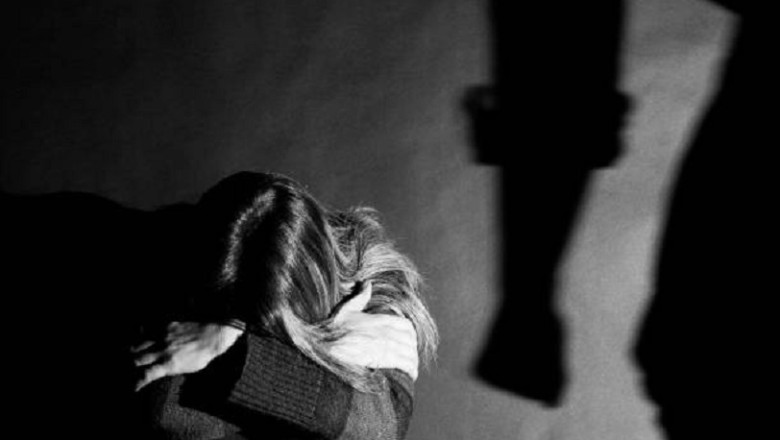
views
A Journey of Survival: Albina's Escape from Domestic Violence
The Weight of Silence
In the city of Pavlodar, a story of resilience lay hidden beneath the surface of a seemingly normal household. For years, Albina endured the storm of domestic violence in silence. Her life had become a cage, bound by fear and the suffocating grip of an abusive partner. The facade of a loving family crumbled as Albina faced the terrifying reality of her common-law husband’s descent into alcoholism and aggression.

At first, love had blossomed quietly between them, but as the years progressed and the alcohol took hold, that love transformed into a brutal cycle of abuse. There were moments where she found herself questioning her worth, wondering if she could have done something differently to prevent this painful existence. But the truth is, the responsibility lay not with her, but with the toxic environment that her partner had created.
The turning point came one fateful evening when Albina witnessed her partner raise his hand against their children. The sight shattered something deep within her; the fear for their safety ignited a spark of defiance that she had almost forgotten existed. It was then she realized the risk of staying was far greater than the fear of leaving.
The Courage to Seek Help
For years, Albina had been trapped by the stigma of leaving an abusive relationship and the fear of being homeless with three children. She had listened to the whispers of doubt that played on a loop in her mind, telling her she would fail as a single mother. But this time, her love for her children outweighed her fears.
With trembling hands and a heart racing with anxiety, she reached out for help and contacted the inspector for the protection of women. That simple act of courage was the first step towards a new beginning. The inspector connected her with the Rehabilitation Center for Women with Children, a lifeline she had never known existed.
A New Haven
Upon arriving at the center, the initial overwhelming feelings of hostility and distrust rushed over her. She was not just battling the trauma of physical abuse; she was grappling with the complexity of emotions stemming from years of emotional and psychological manipulation. The environment buzzed with chaos; numerous families seeking refuge, each carrying their own heavy burdens.
Albina and her children were welcomed with open arms but initially reacted defensively. The center's head, Ainash Ilyasova, recalled the days that followed their arrival. "They were irritable, touchy, and closed off. But we knew that these reactions were born from trauma."
As the days turned into weeks, psychological counseling became a beacon of hope for Albina. Slowly, she began to shed the layers of fear that had suffocated her spirit. The transformation was gradual; with a supportive environment, Albina rediscovered her identity. “She began to take care of herself, got her hair cut, and started wearing lipstick,” Ainash shared—a simple act of self-care that symbolized defiance against the years of control she had endured.
Rebuilding Trust
The children, too, were impacted by the center's nurturing environment. Initially tight-lipped and anxious, they gradually began to open up, learning the art of trust and healing. Ainash mentioned that “the kids were like hedgehogs,” reacting defensively to any small disruption, but over time, exposure to a communal atmosphere allowed them to flourish.
Family therapy sessions encouraged Albina to communicate with her children, fostering relationships founded on love rather than fear. They learned to express their emotions, understanding that it was okay to voice concerns and feelings, something they had been conditioned to suppress.
The Decision to Leave for Good
Albina’s husband, with his manipulative charm, attempted to lure her back with promises of change. Many women, feeling the gravitational pull of familiarity and the fear of the unknown, might have succumbed to such persuasion. But Albina had tasted freedom; that knowledge made returning to the embodiment of her former life impossible.
With focused resolve, she took final strides toward independence. In four months at the center, Albina saved money, secured a rental apartment, and even managed a few minor renovations. This act of establishing a home of her own imbued her with a sense of purpose and strength that had long been missing.
The Ripple Effect of Change
Life beyond the center led to challenges, yet Albina's newfound bravery guided her through. She established communication with the center, expressing gratitude and sharing milestones. Celebrating holidays with the team that supported her was a testament to the bonds forged through shared pain and triumph. “She calls us constantly, always congratulates us on holidays,” Ainash reflected, embodying the nurturing essence of community support.
On the other end of the spectrum, not every woman who sought refuge was met with a story like Albina's. Within the center's walls, another woman faced a different kind of torment—psychological and emotional abuse from her husband and mother-in-law. The silent intensity of her suffering had driven her to the brink, and as her milk dried up due to the stress, she sought help once again.
Ainash explained how many women face different forms of suffering—“80% of women come to us due to life’s difficulties, while 20% are victims of physical violence." It was an important reminder: the face of domestic abuse wasn’t just physical; it oftentimes hid behind the smiles of seemingly prosperous families.
Empowerment Through Education
Beyond rehabilitation, the center provided vital education on recognizing and combating violence. As part of the campaign "16 Days Without Violence," women were equipped with knowledge that extended far beyond the confines of the center. They learned about their rights, methods of self-defense, and the importance of speaking out—not just for themselves but also for their children.
Educating younger generations became part of the center’s mission. Workshops in local schools encouraged children to discuss familial violence openly and assured them that they were not alone. They learned of the right to live without fear, becoming ambassadors of change whose voices would carry the message of hope into the future.
A Broader Movement
As the winds of change swept through Pavlodar, it became evident that Albina’s story wasn’t unique; it was a piece of a larger narrative told across homes and towns. Crisis centers sprang up across Kazakhstan, offering sanctuary and support to women courageously looking to escape toxic environments.
In Karaganda, the Center for Support of Victims of Domestic Violence opened its doors, a testament to the evolving societal awareness surrounding domestic issues. Women received shelter and legal advice, ensuring they would not have to face their struggles alone. Such centers, whether state-run or non-governmental organizations, created an intricate web of support for those in need.
The Call for Action
Albina’s journey exemplifies the strength of the human spirit, yet it reminds us that many women remain trapped in silent suffering. It is vital that society refrains from turning a blind eye to the realities of domestic violence and acknowledges the need for comprehensive support systems. The statistics are staggering—49 women and children residing in the Pavlodar center alone, each one a story waiting to be told.
The helpline remains open 24/7, standing as a beacon for those bound by fear. The commitment to be there, to lend a hand in the darkest hours, reflects the growing awareness and action that is necessary to combat domestic violence.
A new narrative must be woven into the fabric of our communities: one that fosters awareness, education, and compassion. By standing in solidarity, we can ensure that stories like Albina's echo less often and that those still trapped can find their own paths to freedom.
Conclusion
Albina emerged from the chrysalis of her former life, ready to step into a new reality where she could breathe freely and thrive with her children. Her story, while heartbreaking, becomes one of hope for others. She is living proof that even in the darkest circumstances, there exists the possibility of change and a brighter future.
As the clock ticks on, we must continue to rise to the challenge of advocating for the rights of every individual to live a life free from violence. May we hold the hands of those seeking sanctuary and encourage the collective voices that will no longer remain silent.











Comments
0 comment